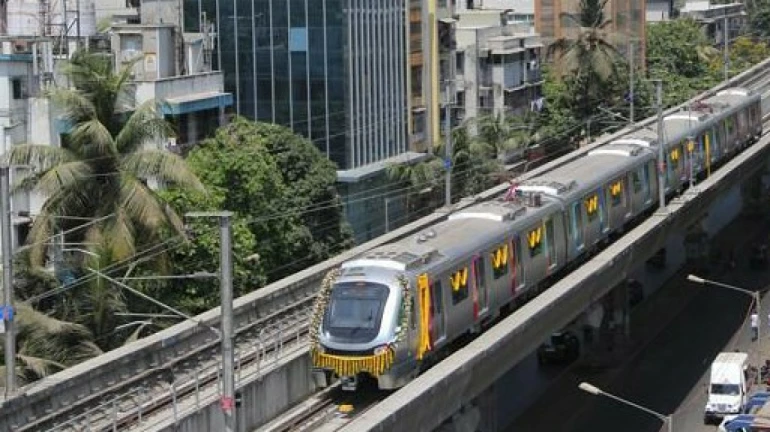
The coronavirus pandemic that began in 2020 came with new hurdles for Mumbai’s pending infrastructure projects including various Metro projects across Mumbai. However, the Mumbai Metropolitan Region Development Authority (MMRDA) has conducted works on Metro projects since civic construction was permitted a few months into the pandemic.
With the MMRDA now looking to start trial runs for Metro lines 2A and 7, its commissioner R.A. Rajeev elaborated on some of the challenges they faced in an interview with TOI.
“The propulsion system, which is an important component in a train, is from Japan. After Covid struck, Japan is yet to grant permission to its engineers to visit India. All synchronisation of the propulsion system has been done by video conference in three timezones — India, Japan and Europe,” Rajeev said.
He further said that the engineers only had around two to three hours to fix complicated issues. “Metro work is complex and involves work with 17-18 sub-agencies and multiple approvals from the railways and others. It also involves land acquisition for depots and stations, the shifting of high tension lines, diversion of utility lines,” he further said.
Also read - Central Govt Busts Misinformation About 5G Testing Causing COVID-19 Surge
When asked if the Centre’s ‘Make in India’ initiative has helped the city’s Metro projects, Rajeev said, “BEML is making Metro rakes for the first time. It is important to remember that the crucial components for rakes are not manufactured in India. In this case the propulsion system and air suspension are from Japan, cables and emergency doors from South Korea, traction control and management system from Hitachi Italy, and auto-couplers, brake and helical system from Germany.”
“In case of signalling and telecommunications, the equipment is from France, Czechia, Denmark, Singapore, South Korea, Italy, Finland, Spain and China… By the time the equipment were ready to be shipped to India, Covid had begun disrupting flights as countries closed borders. Personnel and equipment could not be transferred to India. Manufacturing and assembly were hit for nearly a year,” he added.
Read - MMRDA To Set Up A COVID Care Centre In Malad With 2200 Beds
Talking about the biggest hurdle faced during the construction of the project, Rajeev mentioned the launch of steel girders between Dahisar and Mira Road railway stations which had a nullah plus river on one side and a minor nullah on the other.
“We laid metal plates across tracks for cranes to cross over, shut the minor nullah, laid pipes inside the nullah for water to drain and launched steel girders during the monsoon, saving a couple of months. The pandemic caused major disruptions but we are ready in 5.5 years without any cost overruns,” Rajeev explained.
Also read - MMRDA Says Metro Lines 2A And 7 Are On Course To Begin Operations In 2021





